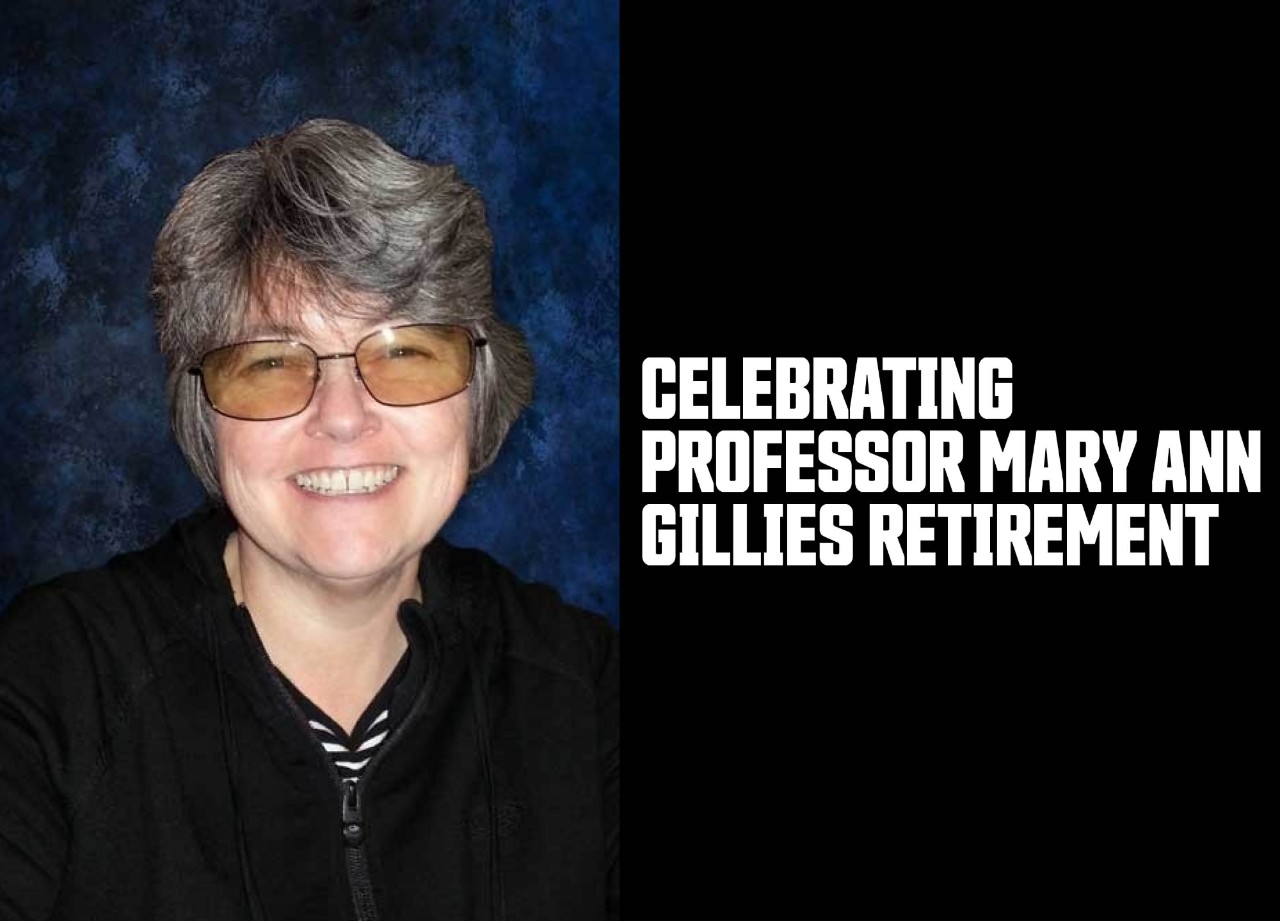Faculty
Celebrating Professor Mary Ann Gillies Retirement

Simon Fraser University's Department of English celebrates the distinguished career of Professor Mary Ann Gillies who retires at the end of December. Department Chair, Professor Stephen Collis, pays tribute to Professor Gillies:
Professor Mary Ann Gillies, who retires at the end of 2024, has had a long and distinguished career at SFU. After taking a PhD at Oxford, where she was a Rhodes Scholar, Gillies began her academic career in SFU's Department of English in 1990, as a Canada Research Fellow. In her almost 35 years at SFU, Gillies served a term as the Department of English's Graduate Program Chair and five years as Associate Dean in the Faculty of Arts and Social Sciences. As a department and university community member, Gillies was an impassioned advocate for students, for collegial self-governance, and for a reasoned approach to her program’s health, balance, and sustainability. She was a thoughtful and excellent supervisor and teacher of students at all levels, guiding her classes through the intellectual matrix that still forms the ground of today’s literature—the era in which all eras became contemporaneous, all information available to (and liable to overwhelm) the thinking and feeling human being.
As a scholar, Gillies' interests ranged from the philosophical underpinnings of modernism (as in her first book, Henri Bergson and British Modernism) to the material and institutional structures shaping that cultural moment (The Professional Literary Agent in Britain 1880-1920). This is an extraordinary range: from the philosophy of time and the way modernist authors like T.S. Eliot and Virginia Woolf took up the changing meaning of time in their most experimental literary works, to the institutional foundation of the business of modern literature, the characteristics of which still shape the economics of literary life today. Gillies has published five books, numerous scholarly articles and book chapters, given countless conference presentations, and organized major international conferences. And her research continues, and no doubt retirement will provide the time for new books. Her legacy as a scholar and fully-engaged academic is impressive, to say the least.
On a personal note, I thank Mary Ann for making my own academic career possible. Mary Ann supervised my PhD in the late 1990s; I was her first doctoral student, but she guided my progress as though she had already supervised dozens to completion. The angle from which I approached modernism was odd and off-kilter, and not especially familiar to Mary Ann, but she understood why I was reading it that way (as a poet learning from previous poets), and she allowed me the space to find my footing as an academic writer. Discussing some of the most complex (some would say obscure!) poetry ever written with Mary Ann, and receiving her feedback on my chapters, I could feel my mind expanding moment by moment. Mary Ann has remained a model for how to supervise: let the student find what they love, let them find their voice—don’t impose, but actually teach—then guide them carefully and firmly through all the steps to completion. I quite literally would not be in the position I am today without Mary Ann’s care and wisdom. I hope I have given half as much to my own students.
The Department of English thanks and congratulates Professor Mary Ann Gillies, and wishes her all the best for the next phase of her life.
Betty Schellenberg, professor emeritus, shares a tribute to SFU English colleague Mary Ann Gillies:
Mary Ann Gillies arrived in the Department of English at Simon Fraser University just months before my own start on January 1, 1991. Thus she, Paul Budra, and Leith Davis created a cohort for me, a luxury that none of them quite had in a department that had not been able to hire new faculty for many years. I remain deeply grateful for the welcome that each of them, and particularly Mary Ann, extended to me as a newly minted PhD. They oriented me to academic life and set a very high standard for scholarship, teaching, and engagement in collegial life; seeking to match their standard was one of the best things that could have happened to me at that point in my career. Not only that – Mary Ann in particular became part of my extended family, sharing a taste for The Terminator with my partner (thereby absolving me of having to see the movies!) and helping my children build a pulley from the porch in the backyard.
Over the years Mary Ann’s fearlessness, whether as a researcher juxtaposing Emily Carr, Virginia Woolf, and Katherine Mansfield, a teacher developing new uses of learning technology, or an administrator tackling the truly thorny tasks as Graduate Chair of English and then as Associate Dean serving under three different deans has made Mary Ann a model and wise counsellor to me and to many in our department. Her experience is extensive and deep, and her retirement will leave shoes impossible to fill. However, I’m looking forward to welcoming her to post-retirement life, and to cheering her on in her next endeavours, which are sure to be surprising and impressive!

